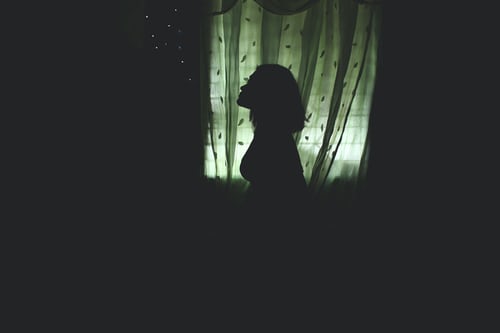NAIROBI, Kenya, Sept 21- Gladys Koskey, 48, has always kept her home in Trans Mara, southwestern Kenya, open to friends and relatives.
But in the past decade, her home has also become an important refuge for survivors of sexual and gender-based violence.
She leads a group of women who champion the rights of women and girls in her community, including by speaking up against sexual and gender-based violence (SGBV) and ensuring survivors get help.
When cases of sexual assault spiked during the pandemic, she was as usually ready to lend a helping hand. However, she was overwhelmed with requests for help from survivors in her community who felt they had nowhere else to seek assistance.
Reported cases of SGBV against women and girls spiked in Kenya in 2020 after the government ordered a lockdown, restricted mobility, and imposed a curfew to curtail the spread of the virus that causes Covid-19.
One hotline for those seeking help on gender-based violence saw a 300 percent increase in reports over the previous year.
Except for a perfunctory presidential address, the government did little practical to address this violence. Human Rights Watch research found that government inaction meant that survivors missed out on timely and critical access to medical treatment, including post-rape care, psychological care and protection services, and needed social and financial assistance.
She is one of the community activists who have stepped in to try and fill this gap, but with limited capacity and resources.
Gladys lives with her husband, and their two adult children live with their families next door. In the morning she cleans her home, cooks meals, or tends to her chickens, cows, and vegetable garden.
At some point, her grandchildren – all toddlers – come by to be with their doting grandparents. The children follow her around the home, and she tries to keep up with their singing and never-ending chatter.
Even with this busy schedule, Gladys makes time for the steady stream of visitors – survivors, or their relatives and friends – who come to her home to seek her assistance. She documents each case in her notebook. In a day, as many as ten people come to her home, or call her seeking help.
In 2010, Gladys and many other women approached the police and local administration and asked them to do more to address the many cases of SGBV in the community and to investigate all cases.
The local administration acknowledged that sexual violence was a problem and developed an informal working relationship with community activists.
Over time, Gladys built an extensive network that includes the local health center, women’s groups, and the community radio station.
She often relies on this network to hold fundraising drives for school fees, or urgent medical assistance for survivors. This was especially urgent during the 2020 lockdown period. Gladys has hosted many survivors in her home during the pandemic, at her own cost.
When she first meets a survivor of rape, Gladys does her best to console them. Sometimes they need a listening ear, sometimes they ask for food, water, clothing, and shelter.
Gladys is not a trained counselor, but she relies on her decade of experience supporting survivors to offer them guidance.
She helps them file reports at the police station if they want to. She takes them to the health center and helps them follow up on their cases with the police or in court.
Some girls arrive at Gladys’ home via the police. They or their family first report the assault to the police, who then call Gladys and ask her to take the survivor into her home while they investigate. The police believe the girls will be safe there.
The local children’s department is aware of Gladys’ work, but they have never come to her home to follow up on the girls.
Gladys recalls, “One time, the police called me to pick up a 9-year-old girl who had been brought to the station by community members who rescued her after her father raped her. The girl’s mother had also been beaten up, and was admitted in hospital.”
Gladys brought the girl back home and took her to hospital for medical check-ups. The girl spent 8 months recuperating in Gladys’ home before her mother came to pick her up.
Even before the pandemic, high levels of violence against women and girls, and a lack of justice and services for survivors were ongoing problems in Kenya.
Given the country’s experience with surges in violence against women and girls during crisis, the Kenyan government should create a coordinated system, including in rural areas, to prevent and protect women and girls, rather than leaving it all up to community members who have endless commitment and limited resources and expertise.
Activists like Gladys are highlighting a long unaddressed problem, hoping that the government will eventually begin to protect survivors.
They believe that a state-run rescue center would offer the most ideal support for survivors, a secure place they can escape to and live in as they receive the support they need.
Gladys keeps in touch with many of the women and girls who pass through her home. She speaks about them fondly, impressed by their progress and empathetic about their ongoing struggles as they rebuild their lives.
She wants to keep her home open to any survivor in her community, and her family supports her work. Thinking about the future, Gladys decided to mentor young activists so that survivors can always have someone to turn to.
Read the original article on HRW.
Want to send us a story? Contact Shahidi News Tel: +254115512797 (Mobile & WhatsApp)


